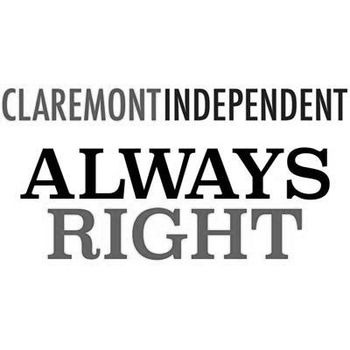Safe Spaces: Where Free Press Dies
It is unbelievable how freedom of the press, a right our Founding Fathers so cherished, has eroded in a country that prides itself on its liberties. It is unbelievable how the right to cover an open event, which freedom of the press entails, cannot be practiced on college campuses.
Last week, while trying to cover an open event discussing the role of the Asian-American and Pacific Islander (API) community in the Black Lives Matter movement, hosted by Pomona College’s Asian American Resource Center (AARC)—which considers itself a “safe space”—I uncovered the sad state of free press at Pomona College. I was hoping to objectively cover this event, to bring out the little-known viewpoints of the API community on the Black Lives Matter movement. This hope was greeted by resentment and hostility, and I left with one message: Freedom of the press does not belong, and is not welcome, in safe spaces.
The process of stifling free press begins right as a journalist walks through the doors into the safe space. While I was initially welcomed when I asked if I could record the event and take notes, further questioning revealed I was trying to cover the event for a student-run publication. Even then, the event facilitators extended their warm welcome, until it was brought to light that this student-run publication was The Claremont Independent, a conservative-leaning paper. No more warm welcome and no more recording allowed, but I was still permitted to take notes.
The death blow of free press in this “safe space” struck later, when I started to take notes on my laptop just as the event began. As I finished typing my second line of notes, I was informed that note-taking would only be permitted if it was approved by all participants of the event—if even one participant objected to my note-taking, I would not be allowed to take notes. Unsurprisingly, after a blindfold vote, at least one person voted against note-taking, and I was told to stop taking notes. I was told that taking notes made participants uncomfortable, and that I should respect the AARC as a “safe space.”
In a subsequent meeting with the director of AARC, I was told the AARC functions primarily as a “safe space” where participants should feel comfortable, and that people’s fears and concerns of an Independent journalist taking notes should be respected in this safe space, adding that the AARC does not want its views advertised to an audience the Independent could reach.
Despite making it clear that speech at this event should make all participants comfortable, attacks on capitalism and “capitalist violence,” the “heteropatriarchal” society, and traits of the “model minority” (like working hard and obeying the law) were left unchecked, without the slightest consideration of whether I, with differing political views, would feel comfortable listening to endless assaults to values which I hold dear. Yet with free press dead, who dares challenge this hypocrisy?
In the college campus “safe space,” with no freedom of the press, there is no check on the lack of ideological diversity, no way for “safe spaces” to promote their messages through an objective third party, and no way for the public to know about and effectively help pressure and protest against the hypocritical “inclusiveness” of safe spaces.
Free press is the restraint that keeps “safe spaces” from becoming “hate spaces” that do not fear whether the stifling of differing views, the silencing of people from different parts of the political spectrum, and the venting and promotion of anger towards certain groups of people, will ever be exposed to and critiqued by the public, where there is no fear whether the public will pressure them to change. Because, without the restraint of free press on safe spaces, the public will simply never know.
Unless safe spaces are made accessible to the free press, journalists need to abide by a new rule concerning reporting in safe spaces: Don’t try. Yet I remain confident, and hopeful, that through the efforts of those who act to uphold our Founding Fathers’ values on college campuses, the rule for journalists will be “Dare to try. Dare to uphold and defend the diversity of opinion, freedom of expression, and freedom of the press.”
This article was originally published in The Claremont Independent, a conservative student newspaper affiliated with the Leadership Institute's Campus Leadership Program. Its articles are republished here with permission.
Follow The Claremont Independent on Twitter: @CmontInd

